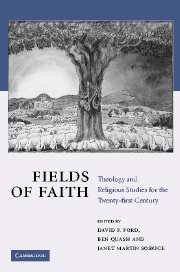10 - Reconciliation
Published online by Cambridge University Press: 22 September 2009
Summary
A few years ago I supervised the Master's dissertation of a Catholic priest. His research focused on how reconciliation was understood amongst the members of his large sprawling parish of six congregations located on the Cape Flats and composed of so-called ‘coloured’ people, a community to which he also belonged. He wanted to compare their understanding of reconciliation with that expressed in various documents produced by the Southern African Catholic Bishops’ Conference. The way in which the bishops understood reconciliation was in keeping with traditional Christian teaching, though contextually related. But this was not the case amongst the members of my student's parish. For them reconciliation had to do with recovering their identity as ‘coloured’ people. Whenever their priest preached on the need for reconciliation in South Africa, exhorting them to become reconciled to other ethnic groups, they heard him say that they should recover their own self-respect. This understanding of reconciliation has, on reflection, a certain logic, for how can South Africans overcome the legacy of apartheid and create a genuinely just and sustainable society unless those who were previously oppressed and who still suffer from the indignities of the past regain respect for their own identity? By the same token, there can be little chance for reconciliation in South Africa unless those of us who were privileged by apartheid because of our skin colour renounce an immoral past and seek to develop a fresh identity as members of a new country in search of transformation.
- Type
- Chapter
- Information
- Fields of FaithTheology and Religious Studies for the Twenty-first Century, pp. 152 - 166Publisher: Cambridge University PressPrint publication year: 2005

